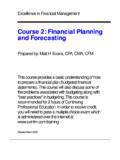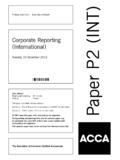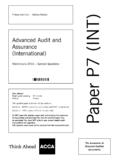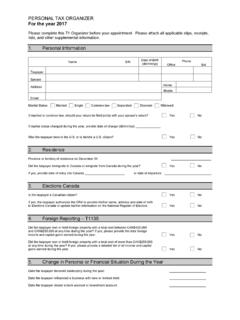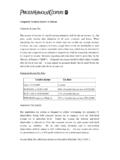Transcription of Year-end tax planning toolkit - Pitcher Partners
1 Year-end tax planning toolkit June 2014 year -ending 30 June 2014 The contents of this document are for general information only and do not consider your personal circumstances or situation. Furthermore, this document does not contain a detailed or complete explanation of the law, as provisions or explanations have been summarised and simplified. This document is not intended to be used, and should not be used, as professional advice. If you have any questions or are interested in considering any item contained in this document, please consult with your Pitcher Partners representative to obtain advice in relation to your proposed transaction. Pitcher Partners disclaims all liability for any loss or damage arising from reliance upon any information contained in this document. Pitcher Partners Advisors Pty Ltd, May 2014. All rights reserved. Pitcher Partners is an association of independent firms. Liability limited by a scheme approved under Professional Standards Legislation.
2 Pitcher Partners Year-end tax planning toolkit Contents 1 Introduction .. 5 2 Summary checklist .. 7 3 Income .. 19 4 Deductions .. 28 5 Individuals .. 37 6 Trusts .. 48 7 Companies .. 58 8 Partnerships .. 69 9 Capital gains tax .. 72 10 Finance issues .. 77 11 International tax .. 81 12 Super and GST .. 91 13 Integrity provisions .. 97 This page is intentionally left blank. 5 Pitcher Partners Year-end tax planning toolkit Introduction 1 Welcome to the Pitcher Partners 30 June 2014 Year-end tax planning toolkit . Year-end tax planning 1 AAs the financial year draws to a close, it is time to start thinking about whether your Year-end tax planning is in order. Tax planning not only requires consideration of income and deductions for the year , but also requires you to consider whether your compliance requirements have been met.
3 This includes whether appropriate elections are made within the time requirements, the preparation and maintenance of appropriate documentation (such as trust minutes) and forward planning of your tax affairs. O ur tax toolkit is here to assist you in this process. What does this document do? 1 BThis document provides an outline of the tax issues that should be considered before Year-end . This document has been updated for new developments and (where relevant) the 2014/1 5 Budget announcements. This toolkit is specifically tailored to address the taxation concerns of taxpayers in the middle market and includes checklists covering both corporate taxpayers and private groups. What this document doesn t do 1 CThis toolkit is not intended to be a comprehensive document covering all taxation issues that require consideration. This is because every taxpayer s circumstances are unique. Instead, this document is only intended to provide you with a broad range of issues for consideration before the end of the financial year .
4 Take care about tax planning 1 DTax planning may often result in a taxpayer paying less income tax in a given income year . It is noted that the definition of a tax benefit under the tax anti-avoidance provisions is broad enough to cover a deferral of income tax. Therefore the tax anti-avoidance provisions must always be considered as part of your Year-end tax planning . Given that the general anti-avoidance provisions have recently been expanded, taxpayers must always consider these provisions. We have included a number of anti-avoidance or integrity provisions for your consideration in Chapter 13 of this toolkit . How will you find what you are looking for? 1 ETo assist you in quickly locating the area of tax that is relevant to you, this document has been subdivided into chapters. The chapters either relate to a specific type of taxpayer ( a company or trust) or to a specific tax topic ( capital gains tax). Furthermore, Chapter 2 of this toolkit provides a summary of all of the questions contained in Chapters 3 to 13 of this toolkit .
5 The following diagram provides a simplified outline of how this toolkit is arranged. Pitcher Partners Year-end tax planning toolkit 6 We trust you will find this document useful when considering your 30 June 2014 tax planning . Please talk to your Pitcher Partners representative if you would like more information or clarification of some of the issues raised in this document. Disclaimer 1 FThe contents of this document are for general information only and do not consider your personal circumstances or situation. Furthermore, this document does not contain a detailed or complete explanation of the law, as provisions or explanations have been summarised and simplified. This document is not intended to be used, and should not be used, as professional advice. If you have any questions or are interested in considering any item contained in this document, please consult with your Pitcher Partners representative to obtain advice in relation to your proposed transaction.
6 Pitcher Partners disclaims all liability for any loss or damage arising from reliance upon any information contained in this document. Pitcher Partners Advisors Pty Ltd, June 2014. All rights reserved. Pitcher Partners is an association of independent firms. Liability limited by a scheme approved under Professional Standards Legislation. Income [Chapter 3] Deductions [Chapter 4] CORE SECTIONS SUMMARISED Year-end planning CHECKLIST [Chapter 2] Trusts [Chapter 6] Companies [Chapter 7] Partnerships [Chapter 8] Individuals [Chapter 5] ENTITY SPECIFIC QUESTIONS Capital gains tax [Chapter 9] International tax [Chapter 11] Super & GST [Chapter 12] Finance issues [Chapter 10] SPECIALIST TOPIC QUESTIONS Integrity provisions [Chapter 13] 7 Pitcher Partners Year-end tax planning toolkit Summary checklist 2 Enter your details 2 AIf you are completing this document as a checklist and wish to submit this back to your Pitcher Partners representative, please complete your details in the following check boxes.
7 Enter entity name Enter contact details Background 2 BThe following simplified checklist contains a high level summary of the planning items that are covered in more detail in this toolkit . We have provided a reference link to the detailed discussion of each of these tax planning items. We recommend that you work your way through this summarised checklist at first instance. Where items appear relevant, those items should be tagged using the check boxes. The detailed item can then be reviewed in more detail to determine whether the planning opportunity is relevant to your circumstances. Income 2C This section deals specifically with the treatment of income that you may have received or derived during the income year and whether such income should be attributed to the 2014 income year or deferred to the 2015 income year and subsequent years. Business income If you derive business sales income, you may be able defer sales invoicing or bring forward sales invoicing (in appropriate circumstances).
8 Chapter 3B Accrued / unearned income If you record accrued or unearned income in your accounts, you may be able to defer recognition of that income for tax purposes. Chapter 3C Trade incentives Discounts and other incentives on trading stock or services are typically brought to account in a different income year for tax as compared to accounting. Chapter 3D & 3E Disputed amounts It may be possible to defer the recognition of disputed income amounts until you have settled the dispute. Chapter 3F Construction contracts Where you enter into construction contracts that are not your trading stock, you may be able to utilise one of the different methods of income recognition allowed by the ATO for tax purposes. Chapter 3G Insurance proceeds If you received insurance proceeds, you should examine whether the proceeds are in fact assessable and when you need to bring the proceeds to account for tax purposes.
9 Chapter 3H Grants, bounties, subsidies If you receive grants, bounties or subsidies, you should examine whether they are in fact assessable and when you need to bring the proceeds to account for tax purposes. Chapter 3I Disaster relief money Exemptions may be available for disaster relief money received. Chapter 3J Pitcher Partners Year-end tax planning toolkit 8 Interest income For interest received around Year-end , examine the timing of interest income closely for tax purposes as interest is typically assessable on a receipts basis. Chapter 3K Dividend income Dividends accrued may not be assessable at Year-end if they are only declared by not paid. Make sure you also take into account franking credits in your tax planning . Chapter 3L Retail premiums If you received a retail premium as a non-participating shareholder during the year , this amount may be treated as an unfranked dividend. Chapter 3M Trust distributions Year-end tax planning should take into account the expected tax distribution that you may receive from trusts (rather than the expected accounting / cash distribution amount).
10 Chapter 3N Rental / leasing income Consider whether your rental income activities are passive (and therefore on a cash basis) or constitute a business (and therefore possibly on an accruals basis). This can have an effect on the timing of income brought to account. Chapter 3O Foreign taxes If you received foreign income subject to foreign tax, make sure you claim your foreign tax offsets and ensure you gross-up the foreign income for planning estimates. Chapter 3P Non-assessable amounts Consider whether any income you have received this year can be treated as non-assessable. Chapter 3Q Personal services income If you provides services through a trust or company, there is a risk that the income could be your personal services income and attributed to you directly. You should consider the personal services income rules appropriately before Year-end . Chapter 3R Extraordinary items If you have received extraordinary (or significant) receipts during the year , these items must be examined closely from a tax perspective.


